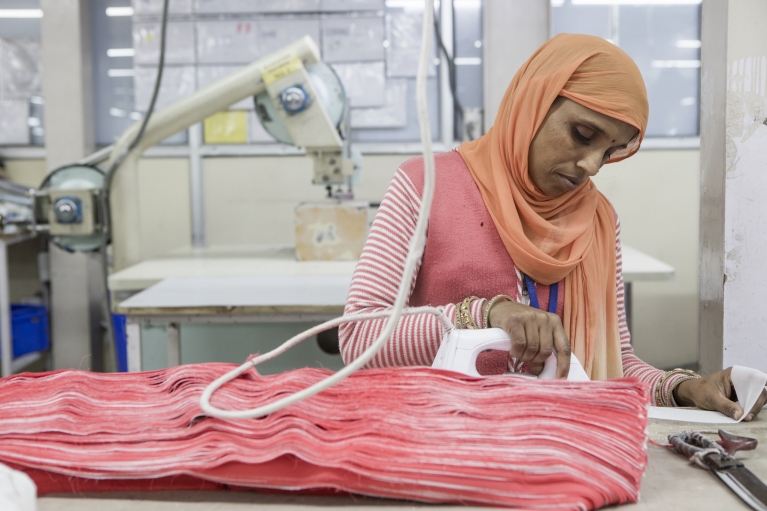ETI is a leading membership organisation focused on addressing human rights impacts in supply chains. By working with companies, trade unions and NGOs we are uniquely placed to tackle the challenges faced by workers around the world.
We support businesses to identify and reduce human rights risks in supply chains, through support, guidance, and collaboration across our membership.
Practical solutions to real world problems
There are some fundamental characteristics that define and guide ETI and inform how we work. These include:
Our membership comprises companies, trade unions and NGOs. By effectively combining the strengths and influence of these three groups we can have most the impact.
The ETI Member Charter establishes the commitments and expectations of ETI, our members, and how we collaborate for impact. It is through these commitments that ETI holds its members to account.
The ETI Base Code is founded on the conventions of the International Labour Organisation (ILO). It is an internationally recognised code of labour practice which all ETI members are expected to implement.
The UN Guiding Principles on Business and Human Rights (UNGPs) are used as a framework for ETI’s work and guidance to business. We use the UNGPs to influence the wider external environment and sectors our members operate in.
Our practical expertise has been garnered over 25 years convening for change, influencing business, and promoting human rights at work. This informs our expert advice, guidance and advocacy. We are experts in applied solutions to real world problems that benefit workers and business.
Our Theory of Change sets out the three main ways in which ETI works to influence change in business practices with the understanding that these have direct impact on workers.
1. Progression & accountability
We support individual member companies to develop their approach to human rights due diligence (HRDD) and actions across their supply chains.
Using the ETI Progression Framework, which takes account of governance and policy as well as the practical tools for working with suppliers, we support member companies to apply the UNGPs. This framework enables ETI to help businesses implement the ETI Base Code and meet the growing need to demonstrate and report on HRDD, directly benefiting workers in their supply chains.
In support of individual action, we share good practice, host a community for shared learning and collaboration, and when needed, hold members to account to meet the expectations set out in our Charter.
"ETI is a great platform for members to learn from other members."
Avery Dennison, Ray Zhang – Global Social Compliance Manager
2. Collective action
Recognising that some issues and problems are systemic or involve more than one company, we leverage our membership to convene on workers’ rights issues and act collectively to resolve them. Drawing on the knowledge, networks, and skills of our different members we can develop the collective understanding and practical approaches needed to tackle the more complex problems that impact workers worldwide. Whether this is a short-term response to a case of abuse, a reported grievance with wider impact or tackling global issues, such as the impact of climate change, ETI collaborates to create practical solutions that can be applied by business and create positive impacts for workers. Beyond our members, ETI engages with other stakeholders as needed to inform our approach and share lessons learned.
See our list of initiatives here.
3. Enabling environment
Businesses and supply chains do not exist in isolation of any other influence on how workers are able to access their rights. Government has a key role as both business and workers are affected by the prevailing regulatory and policy environment, which can in turn be influenced by international conventions, laws, and trade agreements. ETI works with members to influence the policy and regulatory environment that enables responsible business and effective action by all stakeholders along the supply chain to ensure respect for human rights at work. This can be at a multi-lateral level (for example with the ILO, on support for Convention 190), at regional level (such as with the EU, on mandatory human rights due diligence), at a national level (such as the implementation of a new apprenticeship policy in India), or more often at local level (for example, to ensure existing policies and laws that benefit workers are respected)
“ETI is a great source of information, a sounding board, a critical friend, and a great platform for collaborative activities with other brands.”
River Island, Adrian Stevenson – Social Sustainability Lead
Supply chain transparency
ETI company members publish their tier 1 suppliers – a requirement of our Corporate Transparency Framework. We publish their performance against the framework in 2025.


